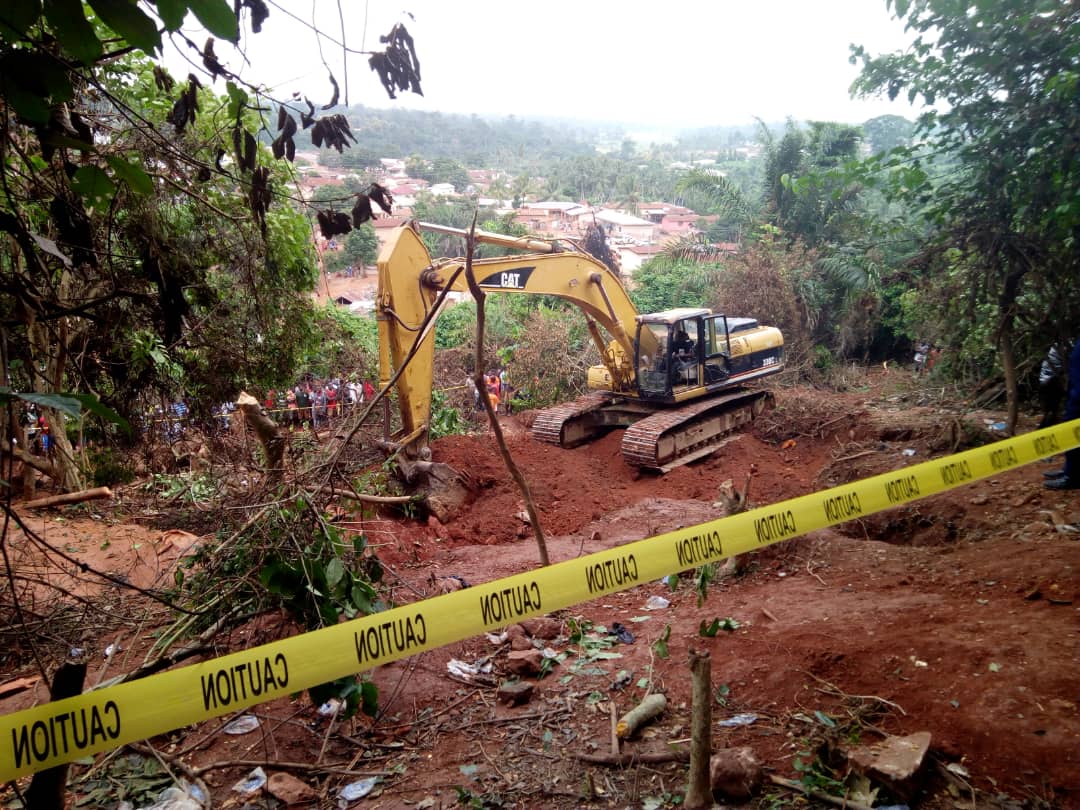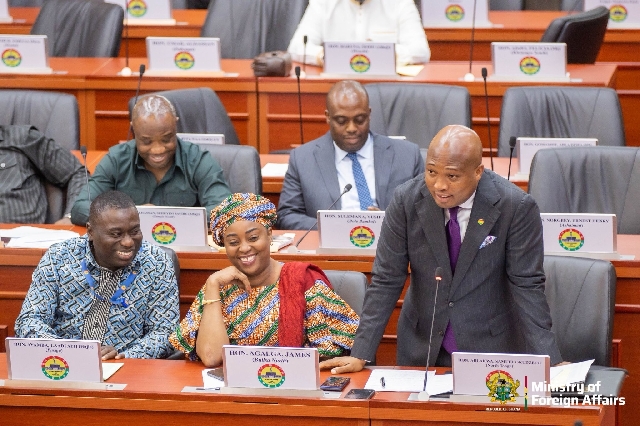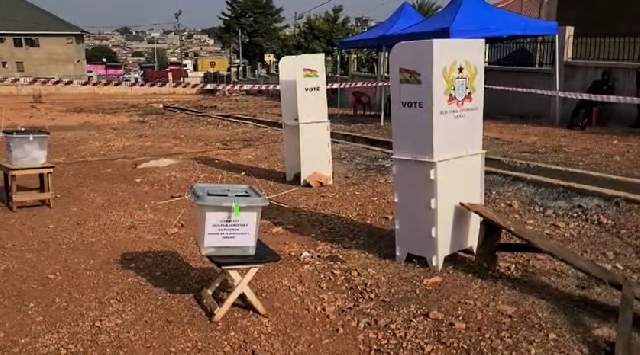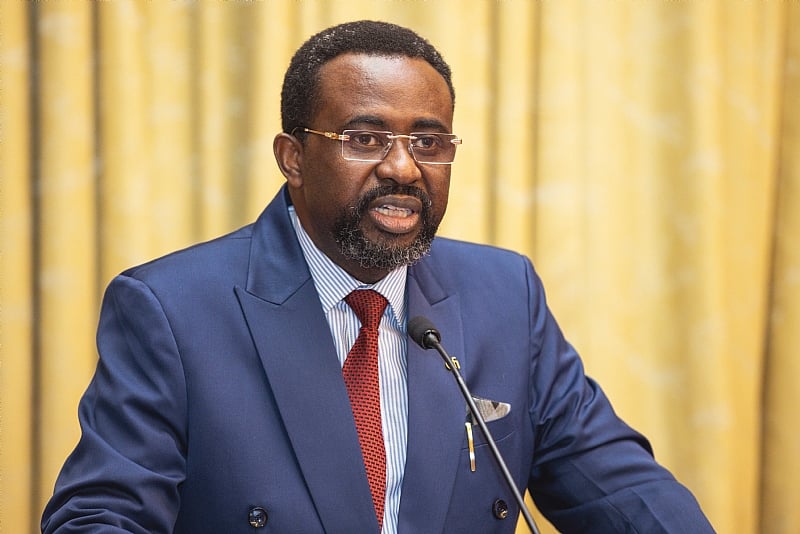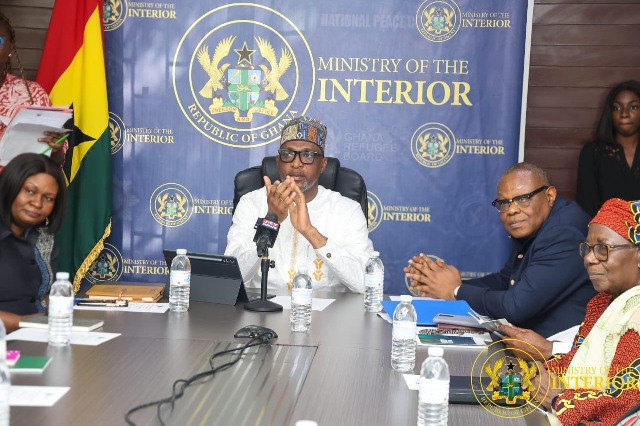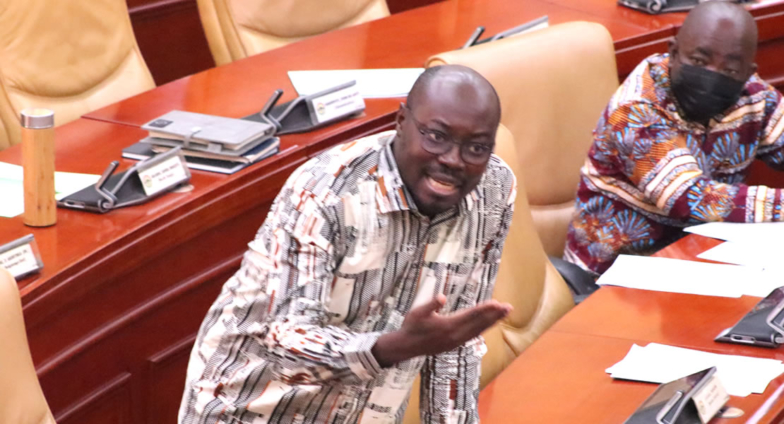Grass Biochar: Project Supervisor Advocates for Sustainable Agriculture Practices
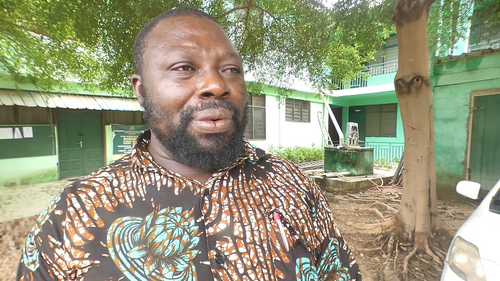
Dr. Maxwell Tengolzor Ba-an, the Charcoal Briquette and BioChar Project Supervisor at Millar Institute for Transdisciplinary and Development Studies (MITDS), recently spoke at a regional workshop in Bolgatanga, emphasizing the importance of biochar in sustainable agriculture. Apexnewsgh reports The workshop brought together stakeholders from various organizations to discuss policies and strategies for climate change mitigation, sustainability, and agriculture. Dr. Ba-an highlighted the benefits of biochar, a product made from grass, which can be used as a sustainable alternative to chemical fertilizers. He explained that biochar improves soil fertility, structure, and water-holding capacity, making it an effective tool for environmental sustainability and climate change mitigation. The project, which has received funding for two years, aims to train women in rural communities to produce biochar and use it to improve their crops. Dr. Ba-an emphasized that biochar is a cost-effective and environmentally friendly solution for rural farmers, unlike chemical fertilizers which are expensive and harmful to the soil. The project has already seen success in the Northern region, where five men’s groups have been trained to produce biochar. Dr. Ba-an expressed his hope for the project to influence national policies and promote sustainable agriculture practices. In his role as field supervisor, Dr. Ba-an oversees the training of women in the production and use of biochar. He emphasized the importance of empowering women in agriculture and promoting sustainable practices to protect the environment and mitigate climate change. The biochar project is a step towards achieving sustainable agriculture and environmental sustainability in Ghana. With its potential to improve soil fertility, reduce chemical fertilizer use, and mitigate climate change, biochar is an innovative solution for rural farmers and a promising tool for sustainable development. Source: Apexnewsgh.com Thanks for reading from Apexnewsgh as a news publishing website from Ghana. We encourage you to freely share this story via social media platform and follow us on; Facebook on APEXNEWSGH-Tv or Please contact Apexnewsgh.com on email apexnewsgh@gmail.com for your credible news publications. Contact: 0248250270/0256336062.
Grass BioChar is extremely important for soil regeneration and fertility–Abena Offen-Gyimah
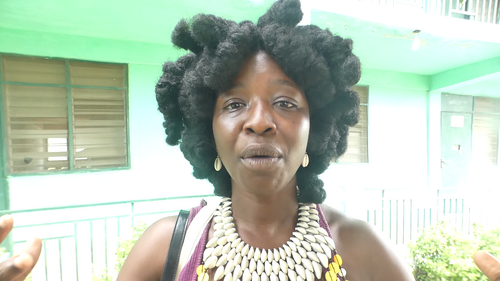
Abena Offen-Gyimah of THE BEELA PROJECT has hailed Prof. David Millar’s BioChar innovation as a timely solution for farmers struggling with soil regeneration and fertility in the context of climate change. Apexnewsgh reports Speaking after a regional workshop in Bolgatanga, she emphasized the importance of supporting farmers in adopting sustainable practices. “BioChar is extremely important for soil regeneration and fertility, and it’s essential to support farmers in finding ways to regenerate soil health with minimal chemical inputs,” she said. “I think this initiative is excellent, and I’m excited to see its implementation across various communities in the Upper East.” Abena stressed the need for demonstrations and awareness campaigns to educate farmers on the benefits of BioChar, particularly in utilizing grass that would otherwise be burned or buried. She believes that government adoption and policy support are crucial for long-term sustainability and encouraging farmers to adopt BioChar practices. “To make it sustainable, government needs to adopt a policy on BioChar, support farmers who use it, and reward them for their efforts,” she said. “Incorporating local governance and traditional leaders in the implementation process will also be essential.” The BioChar innovation has the potential to transform agriculture in Ghana, and with government support, it could become a game-changer for farmers struggling with climate change. Source: Apexnewsgh.com Thanks for reading from Apexnewsgh as a news publishing website from Ghana. We encourage you to freely share this story via social media platform and follow us on; Facebook on APEXNEWSGH-Tv or Please contact Apexnewsgh.com on email apexnewsgh@gmail.com for your credible news publications. Contact: 0248250270/0256336062
Locally Sourced Grass Biochar Offers Sustainable Solution for Soil Fertility–Prof. David Millar
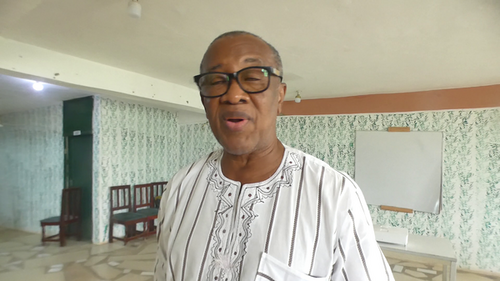
Professor Millar, President of the Millar Institute for Transdisciplinary and Development Studies (MITDS), has highlighted the significance of grass biochar in improving soil fertility, particularly in rural areas. Apexnewsgh reports Speaking at a regional workshop in Bolgatanga, Prof. Millar emphasized that the resources required for biochar production are readily available at the local level, unlike chemical fertilizers. The MITDS, in collaboration with Ghana Federation of Forest and Farm (GhaFFap)/ Forest and Farm Facilities(FFF) is implementing three major projects: grass paper production, charcoal production, and tree planting for reforestation and water conservation. While paper production requires industrial-scale investment, charcoal and biochar production can be done at the community level, empowering farmers to take ownership of their soil fertility. Prof. Millar stressed that a ten-year funding commitment for these projects could lead to a significant environmental impact in the northern region of the country. By charring grass, farmers can create natural fertilizer, reducing the need for chemical fertilizers and the risk of bush fires. This approach also promotes natural regeneration and carbon sequestration, with calculated benefits. Cost-benefit analyses have shown that using biochar is more economical than chemical fertilizers, and the resources required are readily available to farmers at little to no cost. This sustainable solution has the potential to improve livelihoods and mitigate environmental degradation and climate change. Source: Apexnewsgh.com Thanks for reading from Apexnewsgh as a news publishing website from Ghana. We encourage you to freely share this story via social media platform and follow us on; Facebook on APEXNEWSGH-Tv or Please contact Apexnewsgh.com on email apexnewsgh@gmail.com for your credible news publications. Contact: 0248250270/0256336062.
BioChar Innovation: A Game-Changer for Kessena Nankana West District–NADMO Director

Mr. Asoriya Albert, District NADMO Director of Kessena Nankana West, has embraced the BioChar innovation as a revolutionary solution for his community’s development. Apexnewsgh reports Speaking at a recent workshop organized by the Millar Institute in Bolgatanga, he expressed his enthusiasm for the technology, which converts waste materials into valuable resources. “This program is telling me to use my own waste material to make myself better and my people better,” he said. “I’m interested in learning the technology of making BioChar, and I believe I can make money from it.” Mr. Albert highlighted the challenges his district faces with bushfires and grass burning, which pose a significant threat to their livelihoods. He expressed his gratitude to the Millar Institute for introducing this innovation, which he believes will help his community convert waste into a valuable resource, reducing the risk of fires and generating income. “This knowledge is worth more than money,” he emphasized. “I’m willing to learn and adopt this technology to improve my life and the lives of my people.” The BioChar innovation has the potential to transform the Kessena Nankana West District, providing a sustainable solution for waste management, income generation, and environmental protection. With enthusiastic leaders like Mr. Albert on board, the future looks bright for this community. Source: Apexnewsgh.com Thanks for reading from Apexnewsgh as a news publishing website from Ghana. We encourage you to freely share this story via social media platform and follow us on; Facebook on APEXNEWSGH-Tv or Please contact Apexnewsgh.com on email apexnewsgh@gmail.com for your credible news publications. Contact: 0248250270/0256336062.
Grass Biochar: Community Resource Management Executive Secretary Lauds Prof. Miller’s Biochar Innovation
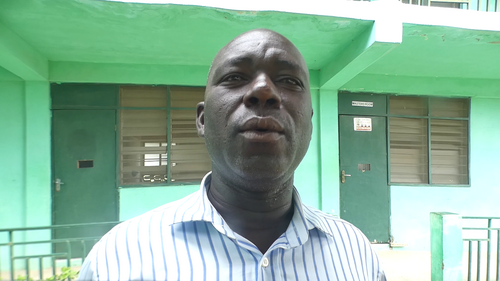
Mr. Pwamebam Frank, Executive Secretary of Community Resource Management, has praised Prof. Miller’s biochar innovation, hailing it as a game-changer for the region. Apexnewsgh reports Speaking at a regional stakeholder workshop organized by the Millar Institute in Bolgatanga, Upper East regional capital, Mr. Frank noted that the innovation will significantly reduce the costs of chemical fertilizers, leading to improved health and economic benefits for the community. Economic and Environmental Benefits Mr. Frank highlighted the numerous benefits of biochar, including reduced chemical consumption, improved health, and increased food sovereignty. He also noted that the innovation will help protect the environment by reducing deforestation and pollution in water bodies. Empowering Communities Mr. Frank encouraged the adoption of biochar, citing its potential to improve education and livelihoods. He emphasized that the innovation is demand-driven and can be easily adopted by farmers, leading to increased yields and reduced costs. Call to Action Mr. Frank urged the Institute and Prof. David Millar to continue researching and promoting biochar, exploring its diverse uses, including biochar powder for tea and other products. He expressed his gratitude for the innovation and its potential to bring economic benefits to individuals and the community. In summary, Mr. Pwamebam Frank has lauded Prof. Millar’s biochar innovation as a revolutionary solution for sustainable agriculture, economic growth, and environmental protection in the Upper East region and beyond. Source: Apexnewsgh.com Thanks for reading from Apexnewsgh as a news publishing website from Ghana. We encourage you to freely share this story via social media platform and follow us on; Facebook on APEXNEWSGH-Tv or Please contact Apexnewsgh.com on email apexnewsgh@gmail.com for your credible news publications. Contact: 0248250270/0256336062.
Professor David Millar turned nuisance grass into an essential commodity after a successful production of brown paper
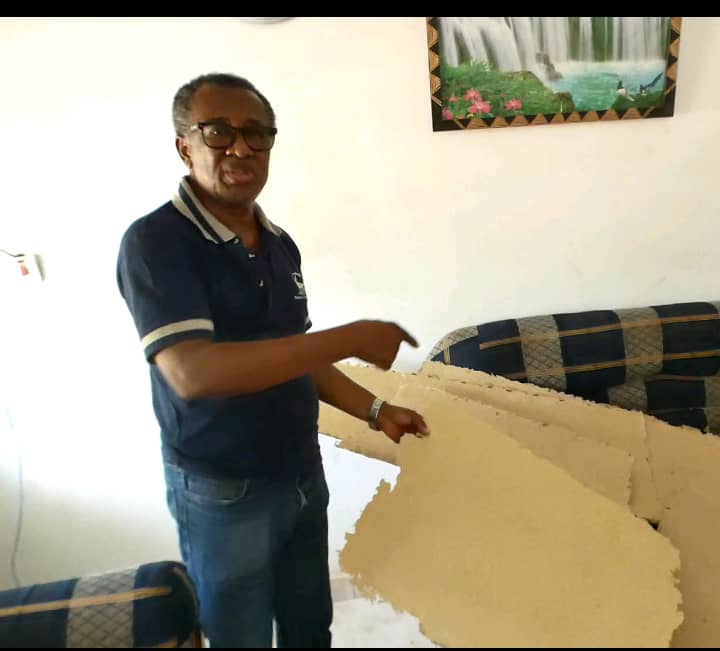
To what looks and sounds like the first of its kind in the entire African continent, the President of the Millar Institute for Transdisciplinary and Development Studies Prof. David Millar, and his Institution have identified a solution for nuisance grass wastage, especially for those in the northern part of Ghana. Something that is well regarded by the citizens as a nuisance waste will soon become an essential commodity, and this is because Prof. Millar through research has identified that the grass we normally described as a nuisance waste could serve as a life-changer to citizens in most communities across the country and the world at large. Professor. David Millar during a One on One exclusive interview with Ngamegbulam Chidozie Stephen of Apexnewsgh.com at his office on Thursday, June 2, 2022, said, he want the attitude and behaviors towards grass to be transformed into one that is generating resources, generating opportunities, alleviating poverty and improving livelihoods. Meanwhile, engaging him more about his new grass revelation and converting of grass into brown paper production, he said: “In our research, the focus is to make the research as relevant as possible for the jurisdiction in which we find ourselves and we are situated in the grassland Savanna Region and the major material that is common to all and easily accessible is grass. So, in our endeavor to create an agenda for research, we opted for looking the possibility of initiating a grass industry for northern Ghana, an industry that would take advantage of the commodity that we have widespread and also, that would involve all categories of persons, all stakeholders will be key players in that industry and hence, the grass came out strongly as a common commodity. He said. According to Prof. Millar, their investigation shows that as far as the communities are concerned, grasses are a nuisance and during a certain time of the year, they don’t see what can be done of grass and they subject it to bush fires or burning and hence, they ended up destroying the commodity called grass. “As scientists, if you are able to look at this so-called nuisance and transform it into an essential commodity, won’t it come along with a management regime that will help prevent the annual ritual of burning grasses? So, that is one of the strongest motivations we have for embarking on grass development or if you like grass economy”. He stressed “We want the attitude and behaviors towards grass to be transformed into one that is generating resources, generating opportunities, alleviating poverty and improving livelihoods”. So, we embarked on looking further into what the possibilities are. We started with the grass charcoal in order to develop grass breakers that will replace tree charcoal in terms of renewable energy and we are very far gone with that. We have some experimental samples we have produced. So, while doing that, we also thought that we should address the issue of environmental pollution. We have all these plastics that are all over the place, all over the country, we appear not to have any solution towards dealing with the menace of plastics and we are also afraid to institute laws because we have no alternative”. “It doesn’t make sense when you put a law banning an item when you don’t have a substitute, the law becomes an abattoir around people’s necks and you create a lot of management problems. So, we said, we would start working on this alternative to plastics and hence we decided to start experimenting with the transformation of the everyday grass, the conventional, and the grass that is burned into paper and I must say we have some interesting results to show. He pointed Prof. Millar further revealed, “Right now, we are still at the stage of developing a brown rough paper and we expect to arrive at the brown smooth paper and then we think of other light forms of paper. Besides the plastic replacement, the brown paper can still serve as envelopes, toilet rolls and many other opportunities that the paper can serve as cardboard boxes and means of packaging”. “So, the various windows that are open to this small enterprise and we anticipate a very rapid growth of the enterprise and an enterprise that will deal with environmental issues, social issues, livelihood concerns and even poverty because we normally purchase the grass from the communities. “So, there are all these arrays of benefits that go along. Men can easily sell grass if there is a grass market, women can sell grass, old ladies can sell grass and even children going to school can sell grass. If they have a problem paying school fees, you can take a load of grass go and sell and the child might even be in the position of paying the school fees for himself. So, these are the benefits of this enterprise we have started. During the dry season, most parts of the country especially in the north experienced terrible bush fire burning which normally caused a lot of havoc to farmers who mostly appeared victims after losing their produce for the year. But with this development, the frequent bush fire burning is likely to reduce drastically because, community members and land owners will take their grasses more serious because, it has become a commodity and no more waste. However, asking whether the wonderful grass initiative has received any form of collaboration or support from the government? Prof. Millar responded: “I must say, this One District One Factory (1D1F) thing, this is one factory that has multiple effects. The district could easily order waste bags, which would give them an opportunity to rule against plastic bags. District Assemblies can now say, no more plastic bags because we now have paper bags in the market. So, this is a good point you have raised, we have not reached out to them yet but, from the sharing of information and experience, we will get to that level as well. He said
Chinese in charge of Pwalugu Multi-Purpose dam leaving site, no fund–Prof Miller reveals

A well-known farmer and founder and Vice-Chancellor of the Millar Institute for Transdisciplinary and Development Studies (MITDS), Professor David Millar has revealed that the Chinese in charge of Pwalugu Multipurpose Dam are leaving the site for a different location. Apexnewsgh.com report. Speaking to Ngamegbulam Chidozie Stephen of Apexnewsgh.com on Tuesday, March 29, 2022, in an exclusive interview, Professor David Miller said: “The whole thing is becoming negative. The Chinese who were there when we went, some of them have moved out. So, we don’t know what is happening”. He lamented. He said, from the way things are going, it is clear that there is no money to fund the project. You know some monies were allocated for the project in this year’s budget, but finances have thrown the budget out of gear. There is no money to finance the project”. He, however, advised the government to suspend the mouthwatering multi-purpose dam for a while since a little over $10milion will bring back the Vea dam to shape. “Vea is there, is not totally collapse, it will place at 30 or 40 percent and with just a little bit of investment, Vea could be brought to 60 to 80 performance. The problem with Vea is the canals”. “If the government can say let’s suspend the Pwalugu for a while and let’s develop Vea first, it will make development sense. “In any case, the Vea has a direct benefit for the Upper East Region than Pwalugu. Pawlugu benefit is indirect, s more in North East Region but Vea is sitting in the Upper East Region. We have evidence to show that Upper East Region will be losing land and any other opportunities while North East will be gaining. In less than one year, Vea Dam could be fixed. Professor Miller stressed Apexnewsgh.com/Ghana/Ngamegbulam Chidozie Stephen Please contact Apexnewsgh.com on email apexnewsgh@gmail.com for your credible news publications. Contact: 05555568093

